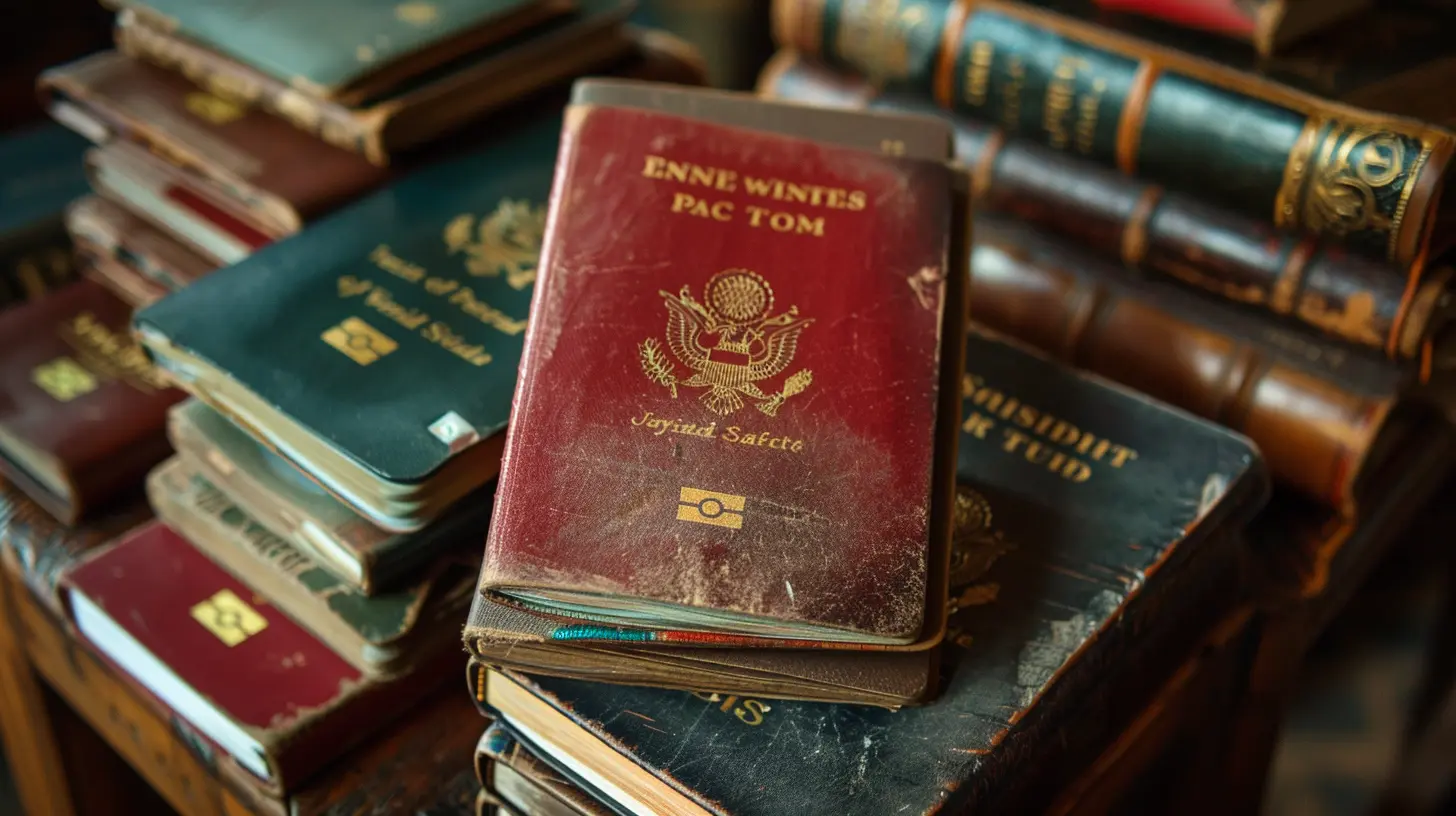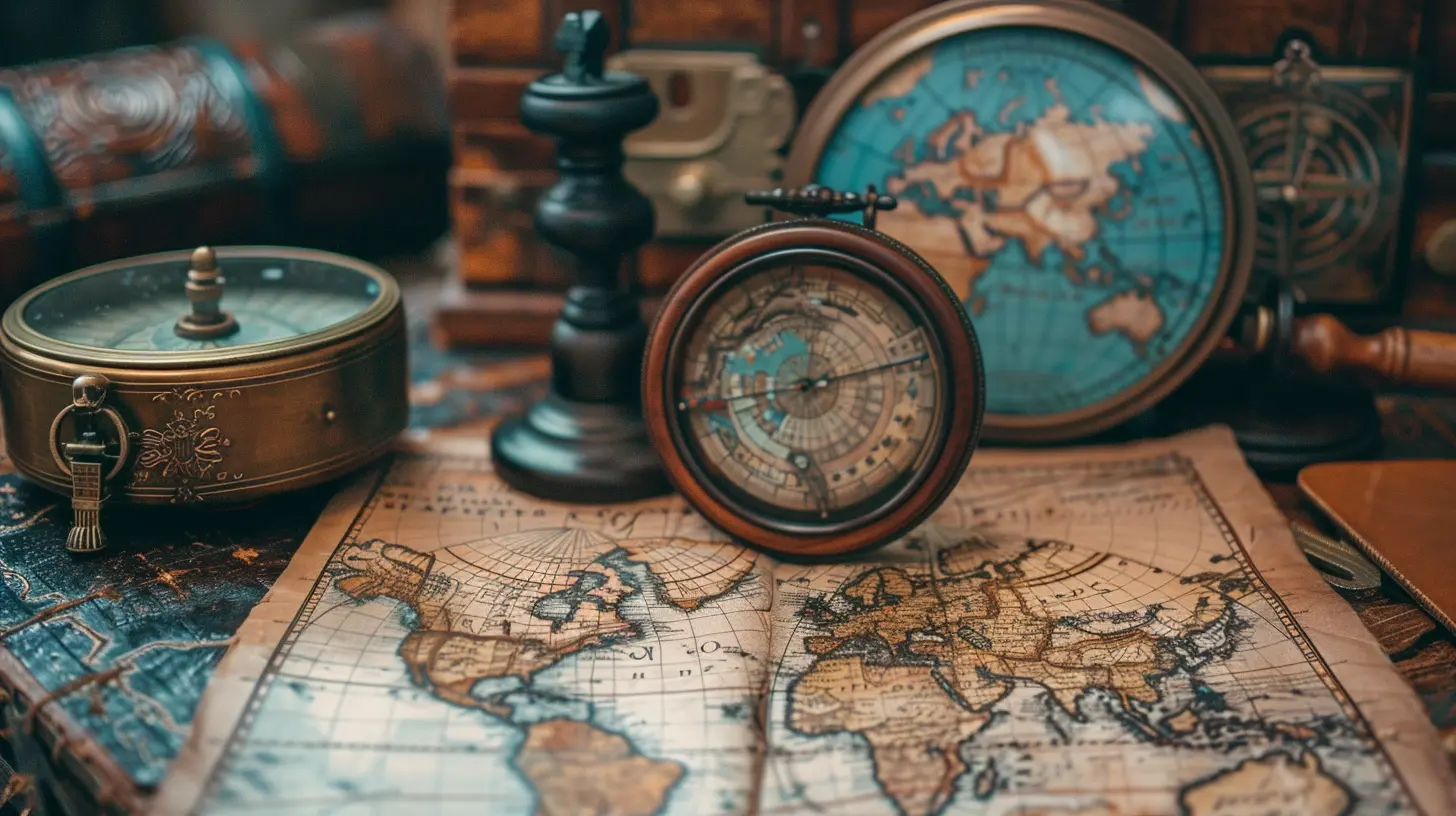16 March 2025
Traveling is exciting—planning your outfits, dreaming about the adventures, and imagining all the Instagram-worthy moments waiting for you. But have you ever had that sinking feeling like you forgot something important? Imagine standing at the airport check-in only to realize you've left your passport at home. Yikes! To save you from that nightmare, I’ve put together the ultimate essential travel documents checklist to ensure your next trip goes off without a hitch. Let’s dive in!
Why Travel Documents Are Non-Negotiable
Think of your travel documents as the golden tickets to your journey. Without them, getting on a plane or checking into a hotel is like trying to drive a car without keys. It’s just not happening! Whether you're exploring new countries or heading out for a weekend getaway, these documents are your passport (pun intended) to a stress-free trip.
1. Passport – The Holy Grail of Travel
This one’s a no-brainer. Your passport is your primary ID when you're traveling internationally. Even for domestic trips in some countries, an official ID might be mandatory. Before packing your bags, make sure you’ve got this baby ready to go.Quick Tips:
- Check expiration dates: Many countries require your passport to be valid for at least six months beyond your travel dates. Imagine being denied entry for a tiny technicality!- Make physical and digital copies: Always carry a photocopy in your luggage and store a digital version in your email or cloud storage. It’ll save you a world of trouble if it gets lost or stolen.

2. Visa – Your Permission Slip to Enter
Planning to visit a foreign country? You might need a visa. Think of it as a formal invitation from the country you’re visiting, saying, “Sure, come on in!”Types of Visas:
- Tourist visa: For vacations and casual trips.- Work visa: If you're traveling for job purposes.
- Transit visa: Needed when passing through a country on the way to another destination.
Pro Tip:
Research visa policies well in advance. Some visas can be issued on arrival, while others take weeks of processing. No one likes last-minute stress, right?
3. Driver’s License or International Driving Permit (IDP)
Planning a road trip or renting a car? Don’t forget your driver’s license! For international travel, you may need an IDP depending on the country. It’s basically a translation of your driver’s license, making it easier for local authorities to understand.Why You Need It:
- Renting vehicles often requires a valid driver’s license.- Some countries won’t let you drive without an IDP, even if you have a valid license.
4. Flight Tickets and Boarding Pass
Let’s face it—no flight tickets, no trip! Make sure you’ve got your booking confirmation and boarding pass ready before you head to the airport.Important Tips:
- Digital vs. physical: While most airlines allow mobile boarding passes, it doesn’t hurt to print a physical copy just in case your phone battery decides to quit on you.- Double-check details: Ensure the name on your ticket matches your passport. A simple typo can create unnecessary headaches.
5. Hotel Reservations and Itinerary
Ever showed up at a hotel only to realize they can’t find your booking? It's awkward, to say the least. Keep your accommodation details handy to avoid mishaps.Be Prepared:
- Printed or digital copy: Have your reservation confirmation accessible, whether it’s in your email, an app, or printed.- Detailed itinerary: Some countries may ask for a detailed itinerary, especially during visa applications.
6. Travel Insurance – Better Safe Than Sorry
I know, I know—insurance isn’t exciting, but trust me, it’s a lifesaver. Imagine needing to see a doctor in a foreign country or losing your luggage. Travel insurance has got your back.What to Look For:
- Coverage for medical emergencies.- Reimbursement for trip cancellations or interruptions.
- Protection for lost/stolen belongings.
Smart Move:
Carry a copy of your policy and note down the emergency contact number of your provider. You don’t want to waste precious time digging for info during an emergency.7. Health and Vaccination Certificates
Some countries require proof of vaccinations, like yellow fever or COVID-19. Health certificates ensure you're safeguarding not just yourself but also others.Check Ahead:
- Look into the health requirements of your destination on government or embassy websites.- Carry both physical and digital copies of your vaccination certificates.
8. Local Currency and Forex Cards
Money matters. After all, how else are you going to pay for those adorable souvenirs or that mouthwatering street food?Options:
- Cash: Always have some local currency for small expenses.- Forex cards: A safer and more convenient way to carry money abroad.
- Credit/Debit cards: Make sure your card works internationally and let your bank know you’ll be traveling.
9. Government-Issued ID
Even if you have your passport, carrying a secondary ID (like a national ID card or driver’s license) is a smart move. Some places might require an additional form of identification.10. Emergency Contact Information
This one’s often overlooked but oh-so-important. Create a list of emergency contacts, including:- Your country's embassy or consulate in your destination.
- Family and friends’ contact info.
- Emergency service numbers specific to the destination.
Store these details both physically (write it down) and digitally (on your phone or email).
11. Copies of Important Documents
Imagine losing your passport or visa during your trip—absolute chaos, right? This is where extra copies swoop in to save the day. Make duplicates of:- Passport
- Visa
- Travel insurance
- ID cards
- Tickets and reservations
Store them in different places, like your carry-on, checked luggage, or even with a travel buddy.
12. Special Documentation for Minors
If you're traveling with kids, the checklist gets a little longer. You might need:- Birth certificates: For proving relationships.
- Consent letters: If one parent is traveling without the other or if the child is traveling with a guardian.
13. Miscellaneous Must-Haves
Here’s a roundup of some documents that might not apply to everyone but are essential for specific scenarios:- Student ID: Great for discounts when traveling as a student.
- Marriage certificates: Sometimes required if your last name doesn't match your partner’s on shared travel documents.
- Work permits: If you’re traveling for employment purposes.
Pro Tips To Keep Everything Organized
Alright, you’ve got the list. But how do you make sure all these papers don’t turn into a literal mess?- Invest in a travel wallet: These are a lifesaver for keeping your documents in one place.
- Go digital: Scan all your documents and save them to your phone or a secure cloud service like Google Drive.
- Create a checklist: Tick off items as you pack them to avoid forgetting anything.
The Final Word
Traveling doesn’t have to be stressful, and having your travel documents in order is the first step toward a smooth trip. Think of this checklist as your personal safety net—keeping you prepared, confident, and ready to make the most of your journey. After all, the point of traveling is to relax and enjoy, not to stress over documents!So, the next time you’re about to head out, pull out this guide, tick off everything, and pat yourself on the back for being so organized. Happy travels, folks!






Rose Edwards
Forget the checklist, just pack your sense of adventure—it's the ultimate travel document!
March 30, 2025 at 3:13 PM